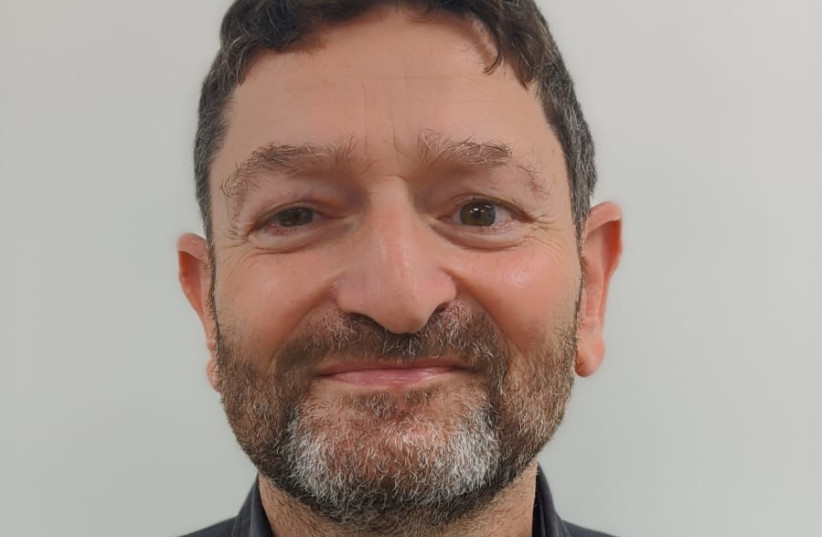The original Omicron variant of COVID-19 has almost disappeared in Israel, with its sub-variant called BA.2 being overtaken by BA.4 and now by BA5, which comprises almost half of those infected, according to Prof. Shmuel Benenson, head of the Infectious Disease Prevention and Control Unit at Jerusalem’s Shaare Zedek Medical Center (SZMC).
Like BA.4, BA.5 was also first detected in South Africa, having been found in a sample collected on February 25 of this year in KwaZulu-Natal. BA.4 and BA.5 share many of the same mutations as the original Omicron variant, but have more in common with the BA.2 variant. They also possess a number of additional mutations, some of which could change their characteristics.
The two sub-variants are often discussed together because the mutations in their spike protein gene are identical, even though they differ in mutations found elsewhere. The spike protein is important because this is what the virus uses to infect human cells and therefore determines how easily the virus is transmitted. It is also the part of the virus used in most COVID-19 vaccines.
Experts say that survivors of earlier Omicron strains can get reinfected by BA.5, but they are unlikely to become seriously ill if they have been vaccinated fully.
What are the experts saying?
While the new coronavirus that exploded into our lives over two-and-a-half years ago has been very unpredictable, it is unlikely that a totally new variant that kills large numbers and against which there is no vaccine protection will appear, Benenson told The Jerusalem Post. “The Pfizer, Moderna and other vaccines that were given in Israel and around the world protected well against infection with the early variants but not against the Omicron variant that took over or against their sub-variants.”
“The Pfizer, Moderna and other vaccines that were given in Israel and around the world protected well against infection with the early variants but not against the Omicron variant that took over or against their sub-variants.”
Prof. Shmuel Benenson

Moderna has reportedly developed a vaccine specifically against Omicron, but it has not yet been approved by the US Food and Drug Administration (FDA) and thus not used anywhere. But fortunately, said the infectious disease expert – who moved last November to SZMC after 16 years at the Hadassah-University Medical Center and prior to that spent eight years at SZMC – the infection causes only mild symptoms in most people if they were fully vaccinated or were infected with COVID-19 in the past.
“I think the vaccine is less effective against B5, and we were vaccinated months ago for the last time,” noted Benenson, “but anyone is elderly, has a weak immune system or suffers from chronic diseases who was never vaccinated or got only some of the shots and was not infected before must get vaccinated now.” Fortunately, SZMC has not patients who became very sick due to B5. There are, however, people seriously ill with chronic diseases and were tested and found to have been infected. Fortunately, there are various pills that are given to people at risk who have been infected to prevent them from becoming seriously ill, he said.
There is not enough information on how many Israelis have been infected in recent months, as few people are going for testing so the Health Ministry has no exact data. People who have symptoms should do an antigen test and, if positive, stay at home and try not to infect others, he continued. “There are probably many times more the 5,000+ daily infections that are reported,” said Benenson, who is not in favor of people getting a fifth vaccination unless it was developed specifically for the variant that has taken over. “Reports on how many have been infected are not accurate, but you can’t hide the number who are seriously ill, as they are in the hospitals.”
In the coming weeks, “there may be people who were infected and become seriously ill, so we have to be on guard,” he added. “At SZMC, we had stopped wearing masks at meetings, but now we have begun to use them again at such gatherings as well as everywhere else in the hospital.” Benenson himself was infected early this year but fortunately developed only a sore throat.
Fifty-eight years old and the father of four, he holds degrees from the Faculty of Medicine and the School of Clinical Epidemiology at Hebrew University and served as a pilot and flight instructor in the IAF. He is widely regarded as one of Israel’s leading experts in the field of infectious disease control.
Even if the Health Ministry were to favor mandatory mask-wearing again, he doesn’t believe that many Israelis will follow such orders. But those at risk, including the elderly and those in geriatric institutions who have been vaccinated, should wear masks indoors.
